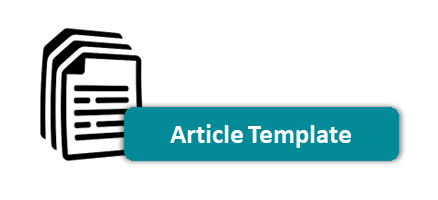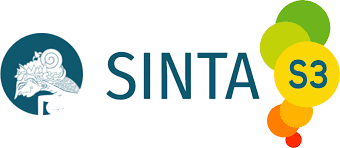MANFAAT INCREMENTAL SOFT INFORMATION DALAM PELAPORAN KEUANGAN TERHADAP KEPUTUSAN INVESTOR
DOI:
https://doi.org/10.24002/modus.v32i1.3198Abstract
ABSTRACT
The information presented in the financial statements, although still considered to be very important information for stakeholders, is still considered inadequate. Information in a sustainability report is important additional information. Sustainability reports are dominated by non-financial information called soft information. If soft information is indeed considered important, this information should be able to influence investors' decisions in the capital market. This research is conducted to examine the effect of soft information on the company's stock price. This research is conducted with experimental data collection technique. The number of subjects used is 100 respondents. The results of this study support the hypothesis that in addition to hard information, soft information contains information (information content) that is useful for users of financial statements. Soft information has a positive effect on the company's stock price. The results of this study also support the hypothesis that the effect of soft information on stock prices is greater for companies with negative earnings than that of companies with positive earnings. The results of this study support the anchor theory and prospect theory.
Keywords: sustainability report; hard information; soft information; anchoring theory; prospect theory
ABSTRAK
Informasi yang disajikan di laporan keuangan walaupun masih dianggap informasi yang sangat penting bagi stakeholder, tetapi masih dianggap belum memadai. Informasi di laporan berkelanjutan (sustainability report) merupakan informasi tambahan yang penting. Laporan keberlanjutan didominasi oleh informasi non-keuangan yang disebut dengan informasi lunak (soft information). Jika informasi lunak memang dianggap penting, informasi ini mestinya dapat memengaruhi keputusan investor di pasar modal. Penelitian ini dilakukan untuk menguji pengaruh informasi lunak tersebut terhadap harga saham perusahaan. Penelitian ini dilakukan dengan teknik pengumpulan data eksperimen. Jumlah subyek yang digunakan adalah sebanyak 100 responden. Hasil penelitian ini mendukung hipotesis bahwa sebagai tambahan informasi keras, informasi lunak mengandung informasi (information content) yang berguna bagi pemakai laporan keuangan. Informasi lunak berpengaruh secara positif terhadap harga saham perusahaan. Hasil penelitian ini juga mendukung hipotesis bahwa pengaruh informasi lunak terhadap harga saham lebih besar untuk perusahaan dengan laba negatif dibandingkan dengan perusahaan dengan laba positif. Hasil penelitian ini mendukung teori jangkar (anchoring theory) dan teori prospek (prospect theory).
Kata kunci: laporan berkelanjutan; informasi keras; informasi lunak; teori jangkar; teori prospek
References
Beattie, V., B. McInnes, dan S. Fearnley. (2004). A Methodology for Analysing and Evaluating Narratives in Annual Reports: A Comprehensive Descriptive Profile and Metrics for Disclosure Quality Attributes. Accounting Forum 28 (3): 205-236.
Bertomeu, J., dan I. Marinovic. (2016). A Theory of Hard and Soft Information. The Accounting Review 91 (1):1-20.
Brockman, P., dan J. Cicon. (2013). The Information Content of Management Earnings Forecasts: An Analysis of Hard Versus Soft Information. Journal of Financial Research 36 (2):147-174.
Cho, C. H., R. P. Guidry, A. M. Hageman, dan D. M. Patten. (2012). Do Actions Speak Louder Than Words? An Empirical Investigation of Corporate Environmental Reputation. Accounting, Organizations and Society 37 (1):14-25.
Clarkson, P. M., Y. Li, G. D. Richardson, dan F. P. Vasvari. (2008). Revisiting the Relation between Environmental Performance and Environmental Disclosure: An Empirical Analysis. Accounting, Organizations and Society 33 (4):303-327.
Feldman, R., S. Govindaraj, J. Livnat, dan B. Segal. (2010). Management’s Tone Change, Post Earnings Announcement Drift and Accruals. Review of Accounting Studies 15 (4):915-953.
Hartono, J., (2004). How, Why, and When Investors Revise Their Beliefs to Company Information and Their Implications to Firms Announcement Policy. Yogyakarta: ANDI.
Hopkins, M. (2004). CSR and Sustainability from the Margins to the Mainstream: A Textbook.
Kim, K.H.; Joo Jeon, B; Seob Jung, H; Wei Lu; Jones, W. J. (2012). Effective Employment Brand Equity through Sustainable Competitive Advantage, Marketing Strategy, and Corporate Image. Journal of Business Research 65 (11): 1612-1617.
Shiller, R.J., (2000). Human Behavior and the Efficiency of the Financial System. NBER Working Paper, 6375.
Stracca, L. (2002). Behavioral Finance and Aggregate Market Behavior: Where Do We Stand? Working Paper. European Central Bank.
Tversky, A. and D. Kahneman, (1974). Judgment Under Uncertainty: Heuristics and Biases. Science, 185, 1124-1131.















